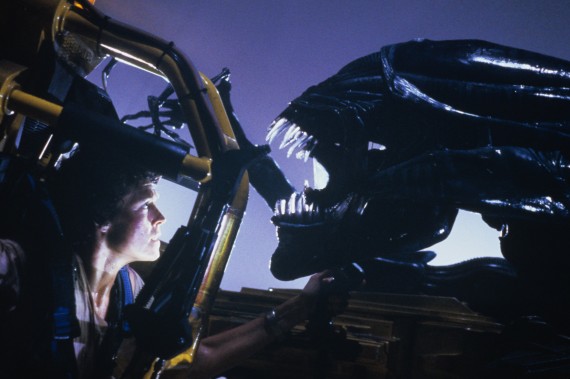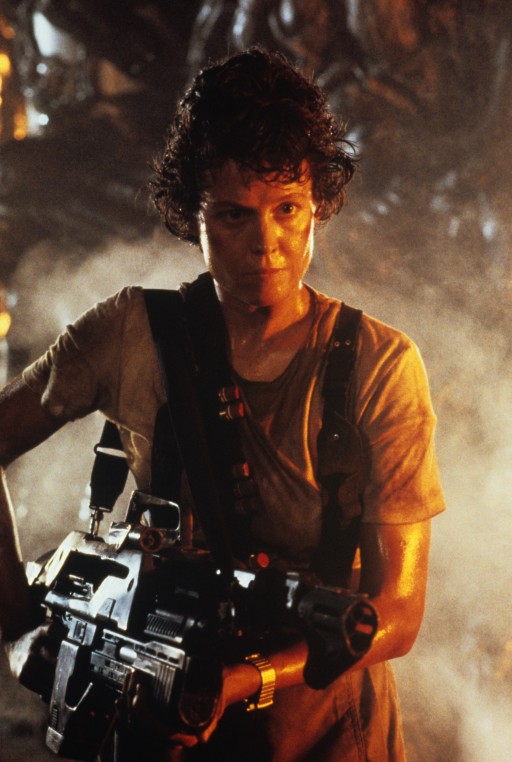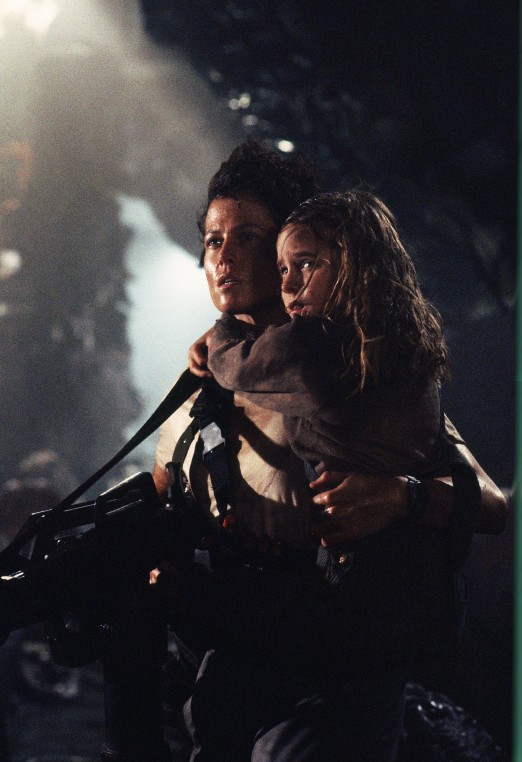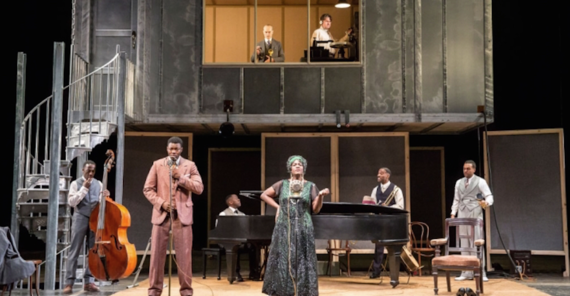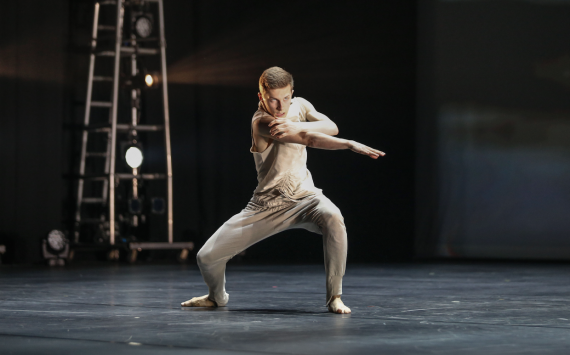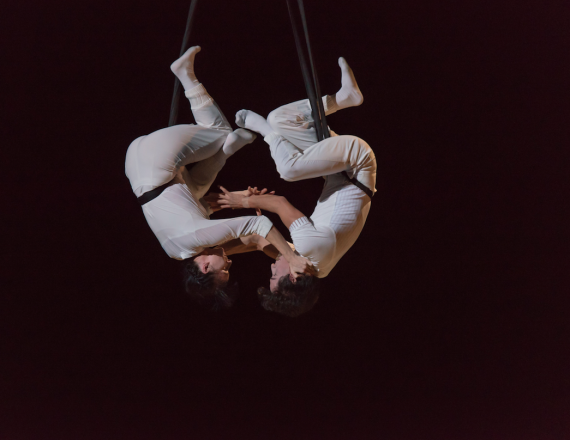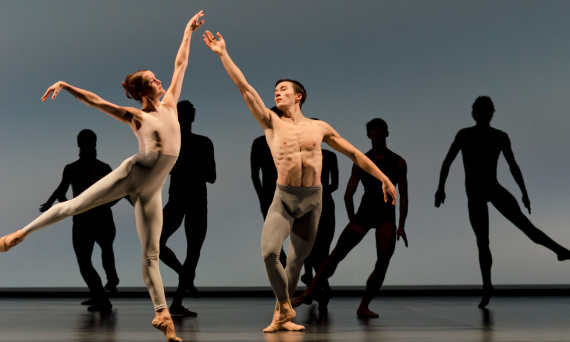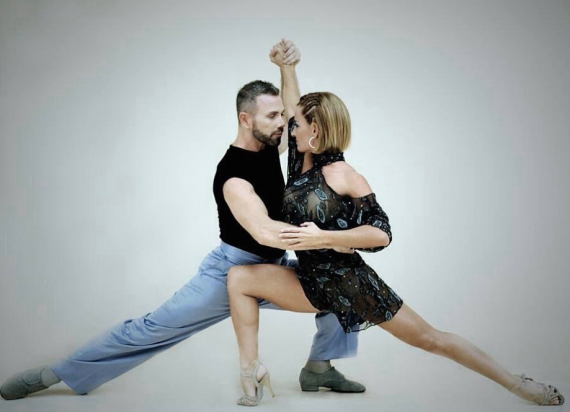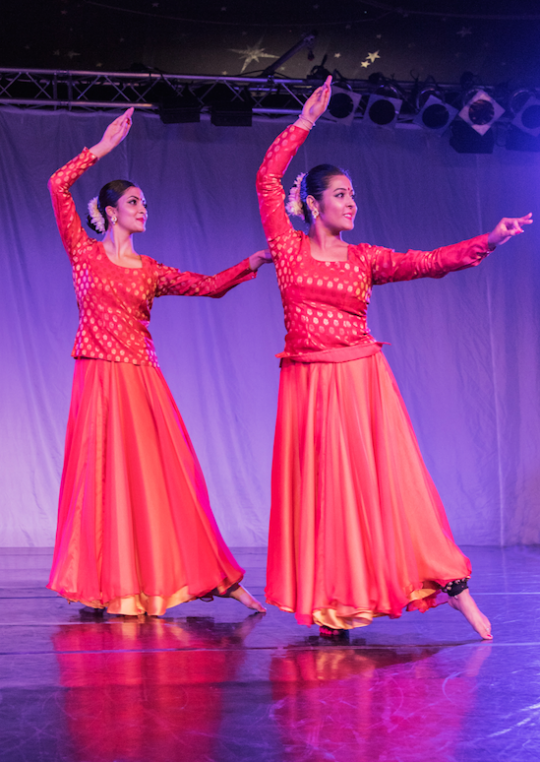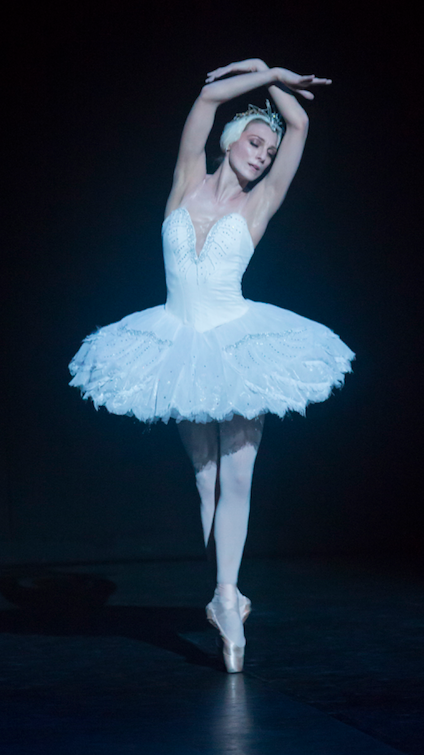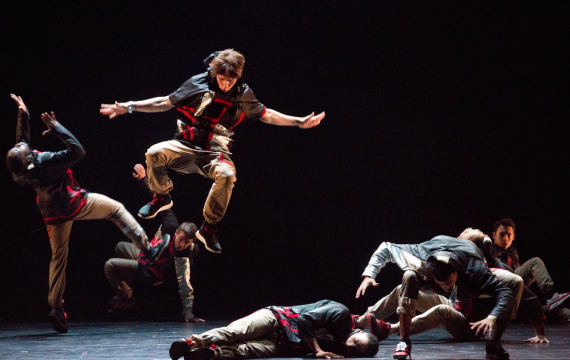Like numerous past years, this years Brits have come in for a bit of a backlash by musicians and music fans that aren’t happy with the nominations.
Every year music stars like Noel Gallagher, Calvin Harris and their peers find a reason to slag them off.
This year however, with the dreaded ‘’diversity’’ buzzword on every industries lips, the focus has been on the lack of black and ethnic nominees, leading to the #BritsSoWhite hashtag trending.
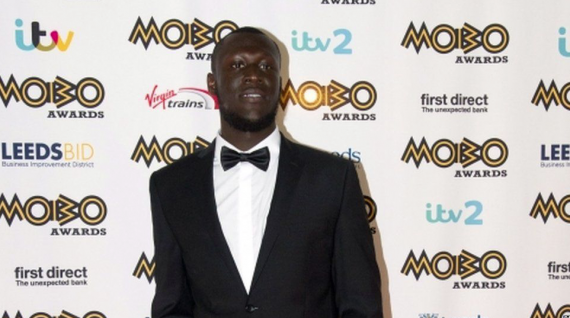
SPOKESPERSON FOR A GENRE- STORMZY IS FEARLESS.
The acts are too scared to speak out, naturally for fear of repercussions. Stormzy bravely tweeted about it and rapped 4 lines in his freestyle. ‘’ “What? None of my G’s nominated for Brits? / Are you taking the piss? Embarrassing.” Referencing Star Wars, the Croydon MC adds: “But I got The Force like Anakin / This year I’ll let that slide, stop panicking.”Stormzy continues: “But next year, I’m going on dark / Like wah gwan, is my face too dark? Last year, they told the mandem that to be nominated / You’ve gotta go on UK charts. So what do we do? We chart / don’t come here with your lies, don’t start / Deny our ting I’ll take you, calm.”
You gotta question it though; Not one British black nominee in a country where black music dominates the radio, TV, student union gigs and nightclubs? In 2016, even a dead act like Amy Winehouse can be nominated before a British black act?
And who HASN’T had an opinion? Laura Mvula said she would boycott it due to “the diversity issue” and said black children were growing up feeling they were “not acknowledged in society, in media and in mainstream music”. However, that powerful statement was extinguished as she added that she may go to the awards next year if she releases an album.
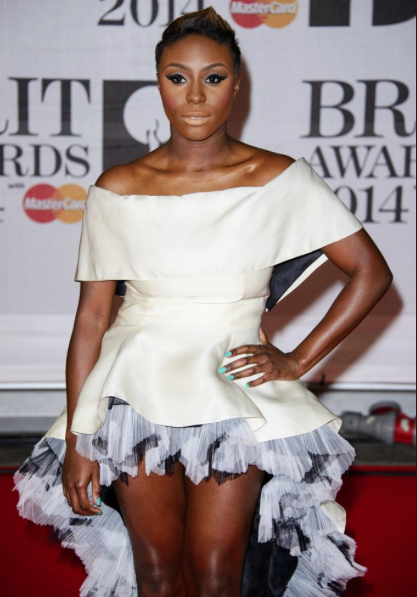
LAURA MVULA LET LOOSE ON ANDREW MARR REARDING HER THOUGHTS ON ALL THINGS BRITS.
Before her, outspoken, always straight-to-the-point, Lily Allen wrote a long Facebook rant, slamming people who “work at major labels” for ignoring some artists in the grime and rap scene, and instead focusing more on their signed musicians. Lily stated “The Brit awards’ blindness to black British talent goes on, as incredible years for Skepta, Stormzy and Lady Leshurr are shunned for music Alan Partridge would approve of.”
Next James Bay, decided to avoid the question of diversity by dragging lily’s credentials ‘I can’t think of her last album, [or] when she last released something’, which lead Lily to compare him to a boring bay=leaf.
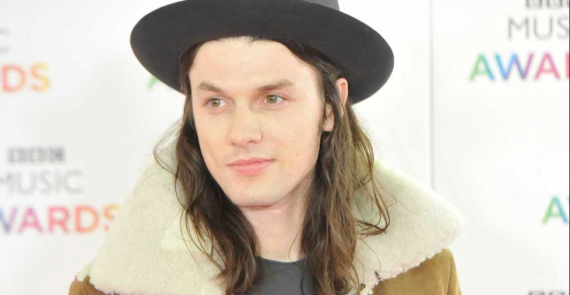
So you get it, It’s a hot topic and everyone has an opinion!
This years Brits nominations in terms of diversity had all the people talking all of the time. I haven’t gone anywhere where people haven’t got an opinion, but often many in the industry are afraid to share for fear of reprisals.
The nominations are so white, but it would be a knee jerk reaction to say that the music industry is racist.
Hattie Collins who is a Music Editor for i-D Magazine says ‘’Race and ethnic diversity is woefully unrepresented in the music industry, as are again females in key positions, so of course you’re going to get the product of what these people are promoting and working on, and that is very much in the majority, male white British acts, which is unfortunate because there’s so much more happening out there. Brands and huge establishments like the ICA are spending money – people are prepared to invest in this culture (grime music) yet the one place where you would expect that to be – the music industry – seems unprepared to support it’’.
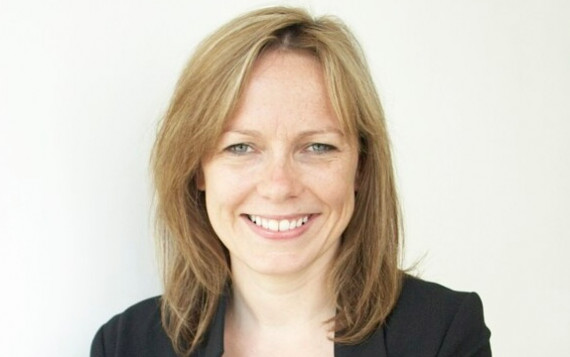
ONE OF THE TOP MUSIC/ GRIME JOURNO’S IN THE UK, HATTIE COLLINS HAS CHAMPIONED GRIME SINCE IT’S INCEPTION.
Logan Sama is a grime DJ that has been championing the scene since its inception over many years ‘’I wouldn’t like to say the British music industry is racist because we do recognise International black successes. There’s never been a problem with black American artists performing these things or getting daytime plays on radio stations. I definitely feel like we don’t recognise our own. When its indie music its fine, it gets recognised. I think the music industry is changing. I think the people working in the music industry are changing. As a grime DJ I’ve been playing the music for over a decade which means that a lot of the people coming into the music industry as professionals have been listening to this music for most of their adult life – if you’re 21 years old – Wiley and Dizzee and Boy Better Know have been around since you were in primary school so the awareness has to be high and as we have a changing of the guard or people start to shuffle off into retirement or sideways into other roles or people promoted from within to the industry, it’ll just be normal that people are listening. When I started you listened to one genre of music, you were into drum and base, you were into Garage, you were into rock, metal and never should we cross paths in the middle. But now we’ve got the internet and they way music is consumed, its a lot more eclectic, there’s a lot more diversity consumed, peoples listening habits, genres – there’s a lot more diversity in sounds which is what music is all about. It’s not about colour. Its not about difference, its about things we can relate when we hear the music. So I think as we see those people coming though we’ll see more diversity in who are rewarded for that and I don’t necessarily think its a racism, I think there’s definitely ignorance, there’s a lack of recognition of the importance of black British musicians and the effects… how much they bring stylistically and inspiration to British music as a whole because it has tremendous impact.
Logan continues; ”I feel like there’s still a lot of ignorance in this country when it comes to different cultures, but specifically black Britain in terms of many things but specifically how we enjoy ourselves – if I go to a festival and there’s a thrash metal band on and there’s a mosh pit in the middle and people are bouncing around and punching and elbows and stuff that’s alright – they’re going to go back to university tomorrow, no one really bats an eyelid – they look from afar and just let them get on with it. Whereas if I’m playing in a nightclub in 2005 and Pow from Lethal Bizzle comes on and people start jumping around energetically – the manager tells me to take it off. And we’ve had that since the So Solid era of not allowing black Britain to go out and enjoy itself, Its ok for you to go out and have fun but black Britain you’re not allowed to because we don’t understand how your culture works and we’re not going to make the effort to do so, its more work than its worth, so we’re just going to shut them down and you cant go out’’.
There’s been a lot made of the fact that this years awards globally have been all white washouts. First #OscarsSoWhite was a thing, then our very own BAFTAS were accused of lack of diversity in their nominations, with a protest outside the venue on the night called #BaftaBlackOut, but on the night, all seemed well in multi-cultured Britain when John Boyega won-the publicly voted for category-best newcomer, Idris Elba was a focus on the night and legend Sidney Poitier was honoured too.
The Brits are run by the BPI – British Phonographic institute – whose job it is to ‘’promote British music’’- I asked a number of music industry key influencers about how well they think it does that.
Hattie Collins;
I think the BPI does a great job at promoting mainstream record label music.. and also labels like Excel – large independents. In terms of reflecting the wider culture of British music, I think it does a pretty bad job to be honest.
With black British artists you’ve had Tinie Tempah or Beverly Knight. You’ve had the odd So Solid and Dizzee Rascal but they are very sporadic – it doesn’t seem to me to reflect what’s happening in mainstream and underground contemporary British youth culture, it seems to be largely ignored and I don’t understand why, particularly this year.
Big Narstie;
There is none, the only diversity there is in the noms this year is the Americans. I’ve said this for a while,… for our country to do good, we need to embrace our country.its like if an English DJ had a record from America and a record from England he would 100% disregard the record from England cos in his hearts of hearts he feels we’re not good enough to compete with then.
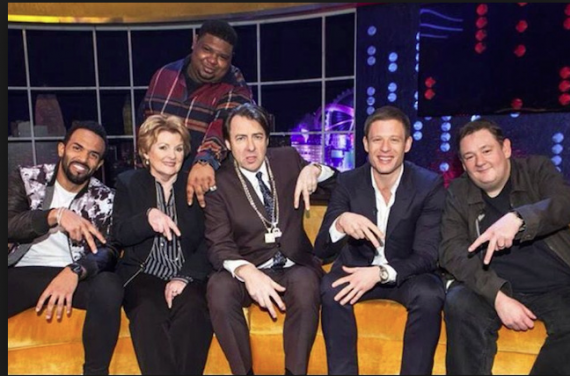
BIG NARSTIE JOINS CRAIG DAVID AND OTHERS ON THE JONATHAN ROSS SHOW.
VOTING ACADEMY
What makes fans angry is often the lack of transparency. For example do you know about how the Brits nomination process works? This past year 1295 were invited to join and 1113 registered. This group was made up of 55 artists and 121 managers. I’m not sure why they would be given a vote? Making up the rest of the numbers are retailers, concert promoters, business services, producers, independent labels, media, radio and honorary (aka the old guard like former music heads etc), major labels (50 registered for each label!…a massive block voting sway possible?)
The Brits told me that collectively the music media – print, digital, TV and radio press= have the largest percentage of votes with 31.8%, not record labels. The major record labels collectively make up only 14.7%. The voting is monitored by the electoral reform services, which is completely independent of the Brit Awards.
However my insider at a big music brand told me that ‘’you always see block voting happen, especially obvious when you check the COMPUTER IP addresses of the voters, and they all come from sequential computers in the same building, voting for the same artist’’.
Hattie Collins gives us some perspective;
We’re a small country and the effects of Grime have been really keenly felt and not just in its own scene but in places like the Barbican, the ICA. There are a number of books that have been done this year. If you look at any mainstream website like the Guardian to Pitchfork to FAder, you look at mainstream artists like Drake and Kanye West, these people are endorsing the music that we are making in this country and yet our own establishment for some reason is choosing to ignore that. That just tells me there is an endemic problem, not just necessarily within the music industry but within the UK and as much as we like to think we’re a very multicultural nation with our days of racism long behind us its just not true. To me it does suggest that there’s a problem within the establishment within society that we still continue to ignore young British, black working class people and their culture.
Apparently if Stormzy- one of grime music’s biggest stars this past year- had released his single ‘’shut up’’ a few days earlier, he would have been eligible. So he’s eligible next year.
GRIME is a big deal to British kids.
Logan Sama told me;
I’ve been playing grime for over a decade now since it started in 2001/2 and its always been a big melting pot of races and backgrounds because its come from the council estates and they are that – white people, eastern Europeans, along with west Africans, west Indians, Asians – everybody living together and growing up together which is why I love grime because its incredibly inclusive. Now days I have shows in Glasgow, Edinburgh, Taunton and Exeter – the length and breadth of GB. Its mainly students and students is a mixed bag. Not just playing to working class kids off the estates – I’m playing to the middle class kids – I’m playing in Oxford in a couple of weeks and there’s loads of uni kids there. We play to everybody and there’s a lot of white faces in those crowds. because there’s a lot of white faces in this country.I’ve been playing grime for over a decade, I’ve watched the hip hop scene grow as well and I’m seeing sell out tours and see people sell numbers I never saw possible for independents and I’ve seen people break down doors, creating industry’s themselves where before they weren’t able to do that. I’ve seen people go on tours internationally and see love from enormous Grammy award-winning artists, I’ve seen people completely change their lives based on the success they’ve had, I’ve seen tens of thousands of kids go crazy to music that never got any major daytime radio play – it was entirely grass roots, specialist through social media so to see all that happen – this year’s been incredible for and I feel that deserves to be recognised.

JASMINE SPEAKS TO DJ LOGAN SAMA FOR CHANNEL 4 NEWS.
Big Narstie;
People thought the grime scene was just violent aggressive street kids drug dealers and gangsters, that’s what they thought for loads of periods of time, before I put on my BDL tour 2 years ago- I was the 1st artist to put on 2 independent grime tours, no promoter across England would put on a fully grime rave…you know why…the 696 form…scared of shootings and all of this bollocks, I put on 2 tours, not one problem, fully grime, no issues, after this everyone looked at me like whoa!…is this little fat shit making all this money across England on his own? Yeah I am! Because, why not!?
Remember the stigma that’s surrounding our scene is that it’s uncontrollable and it’s violent. I’m the hippie of the game, there’s been no bad incidents at my show, everyone gets drunk and has a good time and goes home, some of us get lucky (”pulling” arm gesture).The grime scene is the true voice of the streets of London, England, we are generations and built from drum & bass and garage, whereas garage was Moschino nice girls, grime is more council estates I hate my life I wanna get out of this place, and boom…every kid from the demographics of 11-30 is on this stuff!
Its like when the Beatles first came out, you know your parents must’ve been looking at you like what do you mean, who’s doing the surf? sort it out Margaret…that’s what it is…its like the new generation wave in excitement on the streets of England.
Aren’t the Brits just a fair representation of what’s popular?’ Some have argued that there aren’t any grime / black artists this year who have been popular enough to deserve a nomination’?
Hattie Collins argues ‘’It’s just not true because yes OK if the Brits are about that and reflecting what’s popular then it should be renamed the major label awards because so many of these artists – I can reel off Stormzy, Little Simz, Skepta, JME, Lady Leshurr are hugely popular and this isn’t within just a small niche scene, this is within particularly see this on YouTube, you’ll see this on snapchat, you’ll see this on Instagram but you’ll see this in the charts. For an artist like JME to go to number 11 with a completely independent album and yet not get on the long list of nomination, let alone the short list of nominations tells me that something is really really wrong. Its one thing over the years – yes grime has been very underground, very niche genre for a number of years with the odd pop stand-out like Dizzee, like Tinie which has been recognised on occasion over the years but this year or the last 18 months, the genre really exploded. You’re seeing huge amount of presence not just here but in the States, in Japan. You’re seeing artists playing all over the world. You’re seeing huge figures on Youtube and yet this isn’t represented in the awards so this makes no sense to me and I feel like this year in particular there’s no excuse not to have these artists not reflected within the Brit awards.
Logan Sama backs Hattie up ‘’I don’t think you can say that they haven’t been very popular – when you look at Stormzy’s numbers on social media or YouTube you cant argue he hasn’t been popular. When you look at Krept & Konan getting the highest charting UK hip hop album in history, only losing out to Ed Sheeran on the week the album was released and Ed Sheeran is an international monster of an artist, incredibly talented, but when you look at the sales numbers, they’re not as high as those on breakthrough. But that brings me back to my point that if you just used sales as metric then you really narrow down the artists and the types of music you’re recognising because I feel the mainstream record labels are becoming more and more homogenized with the music they’re releasing and spending marketing budgets on and lets not fool ourselves sales come from advertising and advertising is dependent on whether the company feels confident on a return on their investment and they’re not really taking tremendous amounts of risk in the music they’re putting out and the money they’re spending
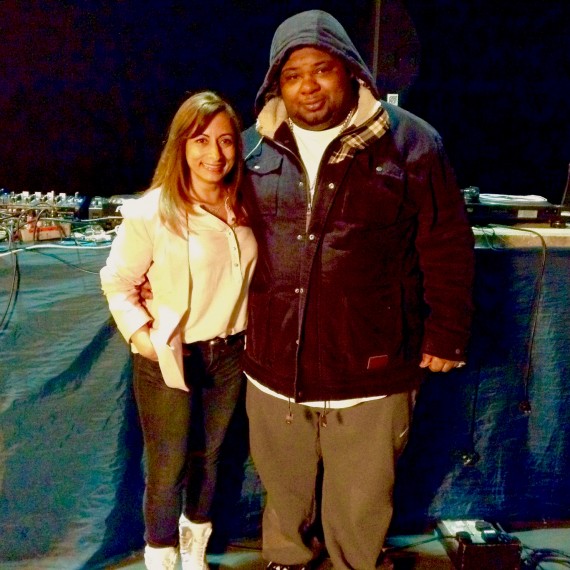
BIG NARSTIE SPEAKS TO JASMINE FOR CHANNEL 4 NEWS.
Grime act Big Narstie says he knows his genre is big whether given mainstream credit or not ’’me being a black kid from Brixton and having a hard strong influence within hip-hop music, its only since i get out and see how small my demographic is, me spitting an authentic grime song from a producer that lives 2 doors from me would get me just here, but i spat on Coldplay spin the web and got played on Jo Wiley’s daytime radio, its what the country accepts really, for a long time the country hasn’t accepted that UK grime artist have that affect. on statistics and on paper its not seen that way. The Brits people aren’t on the scene or coming to a festival or a rave to see what’s happening, they just look at a piece of paper at the end of the day and say and see what’s sold and statistics’’.
So lets get straight to the crux of the matter. Which grime/ black acts this past year should’ve been nominated for a BRIT and why?
Hattie Collins jumps straight in there ‘’For best video 100% Lady Leshurr and Stormzy with 2 fantastic DIY videos made on an iPhone for no money at all but for Lady Leshurr one of those videos has had 20 million views alone same with Stormzy ‘where you know me from’ which was like – I don’t know the current view count but its in the multiple, multiple millions. For newcomer ‘Novelist’ could have had a nod in there. For best single 100%’Shut down’ – without a question. If you go to any party, any festival over the past year, that’s the one song that you’re going to have heard played over and over again. And this isn’t to denigrate anybody else that’s in any of the categories, I just feel that its really really lacking in nominations of this nature. And people like Skepta, like Stormzy could have popped up in best single, best video, newcomer and yet where are they?
Logan Sama enthuses ’’When I looked at breakthrough I expected to see one of Krept and Konan, Skepta or Stormzy. They’re the 3 names I expected to see – at least one of. To see none of them was surprising to me as a music professional but looking at the artists that were in there and maybe taking a step back and what I expect of the Brits and my perception of the Brits, I wasn’t that surprised because I kind of feel like the Brits isn’t for us and whether that’s something that’s acceptable is another discussion but I feel like Kanye being the only person, inviting any of these artists on stage and then the year we’ve had subsequently, the chart success Krept and Konan number 2 album, Stormzy effectively a free-style – they’re all great amounts of success but all the others in that breakthrough category also had huge amounts of success as well – big sales, ticket sales, light show, so I think its difficult to say that any of those artists deserved to be in there at the expense of anyone else. For me, I’m more looking at how can the Brits recognise these new forms of success. And these new signs of affect of popular culture that a lot of these independent artists are having now and that’s not just in grime, that’s in electronic music, in inde in terms of stuff going on right now that’s really grass roots, people directly interacting with their own fan bases and creating their own economy around being independent artists and if you’re just looking at did it chart, did it go gold or platinum, did I hear it on Radio 1 in the day time they’re all things that are difficult for those artists to attain because they dont have those connections and the budgets to attain them but they are still getting tremendous amounts of effect on popular culture, they’re still reaching millions of people
I think Grime artists already have this generation’s ears, eyes and money, so do they need the Brits support? Do these acts want a Brit anyway – aren’t the Brits a bit too middle of the road and mainstream?’
Hattie Collins explains ;’’I’m sure Skepta is losing no sleep as he’s counting the thousands that he makes per show around the world. JME went to number 11 so I’m presuming that he sold at least thousands of copies of his album at £9.99 or £7.99 a pop on iTunes. All that money is going to him less any distribution costs – he didn’t promote it, he didn’t market it, he has no team. So they’re happy working independently – lots of artists don’t want to be invested in the major label scenario because they do know that when they do get signed the tendency is to try and change them water them down so yes Skepta – is he bothered? Probably not, but that doesn’t mean that we shouldn’t be acknowledging and be representing these guys, because they are doing I think super important and contributing loads to contemporary culture. And yet again, they’re being ignored’’.
Logan Sama says that Brits are important; ‘’I think everybody cares about getting a Brit – we are aware of it – we see it on ITV, its a big deal, a big show, big International artists, biggest British artists, of course it means something. No one is going to say I don’t want a Brit, I don’t think. Getting a Brit or getting nominated means something. When you look at the nominations and none of us are on there that means something because we deserve to be amongst those other names that are welcomed into the party – that’s why you’ve heard rumblings and lyrics where people are talking about not being recognised because it means something to be recognised by the Brits 100%. But when you are told to be recognised you need to do this this and this – we feel like we’ve done that and we’re still not recognised, there’s obviously going to be some sort of reaction there and resentment questioning because you’ve told us how the system works, we’ve achieved that and we’re still not recognised. So that shows you Brits are relevant and matter’’
Big Narstie told me; ‘’Of course we want Brits cos its a recognition of the fact that our British music which is authentically made in Britain is not being respected, long story short. How can dubstep, which only came up a few short years ago, win untold Brits?
It is important but as I said, but on the other hand, how can you really care about something you’ve never had…and bear in kind, we’ve always thought we’d never get that anyway. The whole setup is not for our kind’’
What would you say to those that say grime and UK hip-hop acts don’t sell….should success be measured on youth influence as well as simple sales?
Logan Sama;
Young people don’t buy music any more do they, they download they free stream etc The Brits is about popular music – it doesn’t mean its the high selling music – they’re not the same thing. They can be a measurement of what is popular but they’re not the only way. And I feel now more than ever that other avenues in which British artists are succeeding or redefining the terms of success and that influence over popular culture I think when you look at influence of artists like JME, Krept and Konan, Stormzy, Skepta have right now across the UK – being able to sell out shows, put their own tours together, able to release independently, Stormzy selling a quarter of million singles independently, entirely with his own in-house team. Big Sink deals, advertising sink deals, international sink deals with Lady Leshurr appearing on the Samsung ad in US – that’s a massive thing, that’s a huge amount of success but its not direct sales in the charts. So I think we need to look at all these things and re-evaluate what we judge as success in the popular music industry.
There was a huge reaction overall last year after Kanye West brought on a stage-load of British black grime artists. Much of it excited and disgusted social media. Apparently ITV’s ratings showed that was the lowest rating part of the show, but then Kanye is polarizing, this act was a last minute thrown together set and ITV spent most of its time beeping and muting improper lyrics rendering the performance simply unwatchable. Ultimately though, the general consensus was that it took a black American act to give some shine to black British acts.
Big Narstie;
It was good but then it was bad. It’s taken an American man to come and put us on our own national awards. I’d feel ashamed! ashamed! Imagine you’re from west London born n raised but you cant get into your local shop without a man from America? What type of stain are you? That is a stain! What other way to put it? It must be embarrassing innit! cos think about it, how many other English acts came on the stage before Kanye? But couldn’t do that with all the English acts there? This is what the problem is, its been years and years, in the making, its been drummed into our heads that unless you’re an American you cant make it in England in the hip-hop music or grime music.
Hattie Collins;
Which is unfortunate but that’s because people aren’t seeing it enough. I mean the Kanye example is a very extreme example. Kanye did a song that nobody had ever heard before – no one knew who those people were apart from the people watching it so probably kind of confusing but the ripple effect of that performance for the scene was significant, was important. Maybe this year they would have dropped again and the year after. it just takes time, you can’t expect people who have no idea about this music to accept it. But the Brits has a responsibility as a huge part of the music industry to take chances and to bring in people as readily as they do Years and Years or Philip George that they’re prepared to spend time and money on.
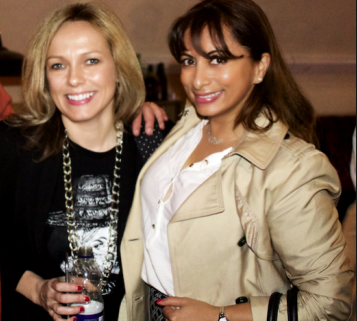
JASMINE SPEAKS TO HATTIE COLLINS FOR CHANNEL 4 NEWS.
So we have the soldiers Stormzy, Lily Allen and Laura Mvula going on record to speak out, but should the industry be afraid of whistle blowing?
Hattie Collins;
Absolutely – the power of numbers and unity with the DSTRKT Nightclub scenario was that lots of people spoke up on it – it makes a huge difference. I understand the reluctance of some artists to be perhaps be vociferous against an established body and that could potentially have an effect on their own careers, but the people united will never be defeated, so I would encourage much more artists to come together, and make an issue of this, because perhaps in the past there wasn’t a place for grime but this year there was. But also this year FKA Twiggs, Lianne La Havas – outside of grime – there are people that really should have been nominated rightfully so and haven’t.
Why should the Brits care about black British music acts in grime and UK hip-hop?
Hattie Collins;
We’re not asking for the nominations to be overrun by grime artists or hip hop artists but some acknowledgement – one or two nominations here or there would have made a big difference and if they had invited Stormzy and Skepta to perform and even if it was on a medley situation – you know come represent, be more inclusive because the way the music industry is going. It seems that the record labels are still very stuck in this old model – music is now being digested in a very different way by people. You’ve got Rihanna making 25 million through Samsung to release her album. You’ve got JME going to number 11 in the charts with no promotion, no record label. You’ve got Skepta working with these huge American artists with no A&R contact. The old ways have changed and if the Brits don’t keep up with that and the British record music industry doesn’t keep up with at then once again, they’re going to be left behind.
The Brits should care about a hugely successful genre like grime for two main reasons. Brand reputation and commercial benefit.
1-Brand rep; if you listen to Radio 1, watch MTV or attend any student gig in the UK you will hear grime music. So the Brits are in danger of looking out of touch with modern day music trends by ignoring grime. Grime acts are doing well without the support of the Brits, but by not including them in your brand does it make your brand feel old media instead of new? Why when mainstream old skool players like the BBC and MTV and new exciting brands like VICE acknowledge the grime music acts on their playlists, do you think the Brits act as if they don’t exist? Are the Brits out of touch?
2-Commercial benefit. Urban music audiences have money. Lots of it. They are about and aspiring to the good life whether its champagne, designer goods or the latest tech-wear. Advertisers love using urban pop culture references to sell their wares. Look at the latest snack adverts for Mattesons. Even when i was working at MTV Base, all the advertisers wanted to place their ad’s there. They know black music fans have money, will spend.
Even if the voting academy don’t vote grime acts in cos they don’t like them, they don’t know about their huge national impact and influence, or they don’t sell, couldn’t The Brits give at least one performance slot to the genre to acknowledge its existence and show its in the know.
What should the Brits do to change things?
The Brits have never had a diversity breakdown of their voting academy- does that matter? I say it does. The voting panel should at the very least be representative of the general population.
The Brits have promised that by next years show in 2017, that 15% of their academy will be BAME and 50% will be female. This is a great start, and at the very least show’s that someone up at Brits Towers actually cares enough to try open a conversation up about changing things so they are a fair representation of music tastes in the UK.
Although in my own personal experience its not sex or race that counts on the panel its simply someone who knows the scene and culture.
Logan Sama agrees; I think to have a proper reflection of the breakdown of society should just be the base level – should be expected. If 15% of our population is black or Asian then that should be reflected. My most important thing though is that we are having people that are voting on these panels that are actually knowledgeable because I don’t necessarily think its prudent to assume that because someone is black/ Asian whatever that they more in touch with what is happening in the music industry for those artists. I’m certainly not black or Asian but I think I’m on point when it comes to grime. I would much rather have the people making these decisions are informed and qualified, than being of the right ethnic background – that’s more important to me as a music lover.
Like Woody Allen said “Eighty percent of success is showing up.” – so let us show up!
Watch Channel 4 News, Tuesday 23rd February,7-8pm, to hear the above and more speak about diversity at the Brits.

